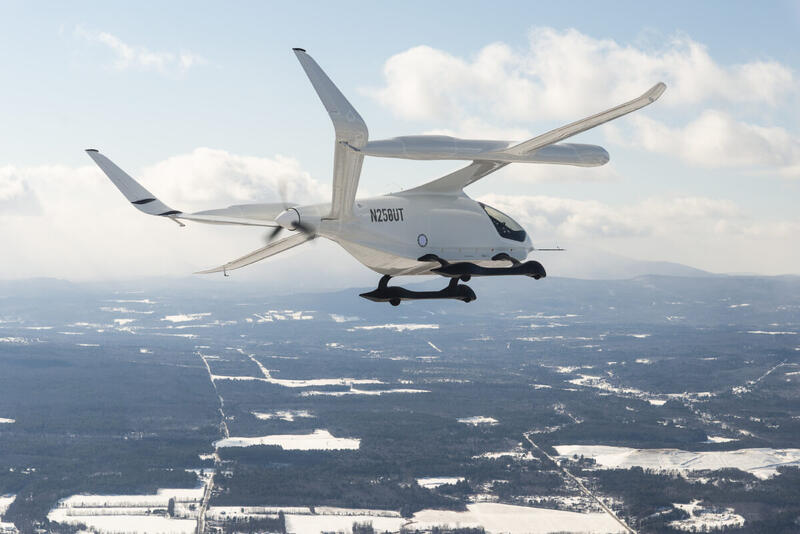Earlier this month, the Federal Aviation Administration (FAA) gave the green light to the first electric aviation training program in the United States, marking a significant step in the development of greener air travel. The program is part of a growing effort to explore the potential of battery-powered aircraft for more sustainable aviation practices.
Nate Moyer, a former Air Force test pilot, faced a critical test as he piloted a new battery-powered aircraft through a challenging flight transition. The electric vertical take-off and landing (eVTOL) aircraft, developed by Beta Technologies, aims to revolutionize air travel by reducing reliance on fossil fuels.
Kyle Clark, the founder and CEO of Beta Technologies, emphasized the importance of electric aviation in addressing climate change. Despite current challenges such as the weight disparity between lithium-ion batteries and jet fuel, technological advancements are steadily improving the energy density of batteries, paving the way for more efficient electric aircraft.
Beta’s eVTOL aircraft, designed to carry passengers or cargo over short distances, has already demonstrated its capabilities with successful test flights covering thousands of miles. The Pentagon has taken an interest in exploring the potential applications of eVTOLs for military purposes, highlighting the broader implications of electric aviation beyond commercial use.
While the United States is making strides in electric aviation, China remains a formidable competitor, dominating lithium-ion battery production and already certifying electric aircraft models. Beta Technologies envisions a future where electric aircraft play a significant role in both cargo and passenger transportation, offering a cleaner and more sustainable alternative to traditional aviation.
Other companies, such as Joby Aviation, are also making significant investments in eVTOL technology, with plans to deploy thousands of electric aircraft for urban air mobility solutions. Delta Air Lines, recognizing the potential of electric flight, has invested in Joby Aviation as part of its commitment to achieving net-zero carbon emissions by 2050.
As the aviation industry embraces electric flight, regulators face the challenge of adapting existing certification processes to accommodate new technologies. While the journey towards carbon-neutral aviation may be complex, the development of electric aircraft represents a crucial step towards a more sustainable future for air travel.
Stay tuned for our next installment, where we delve deeper into the innovations driving the transition to electric aviation.















































